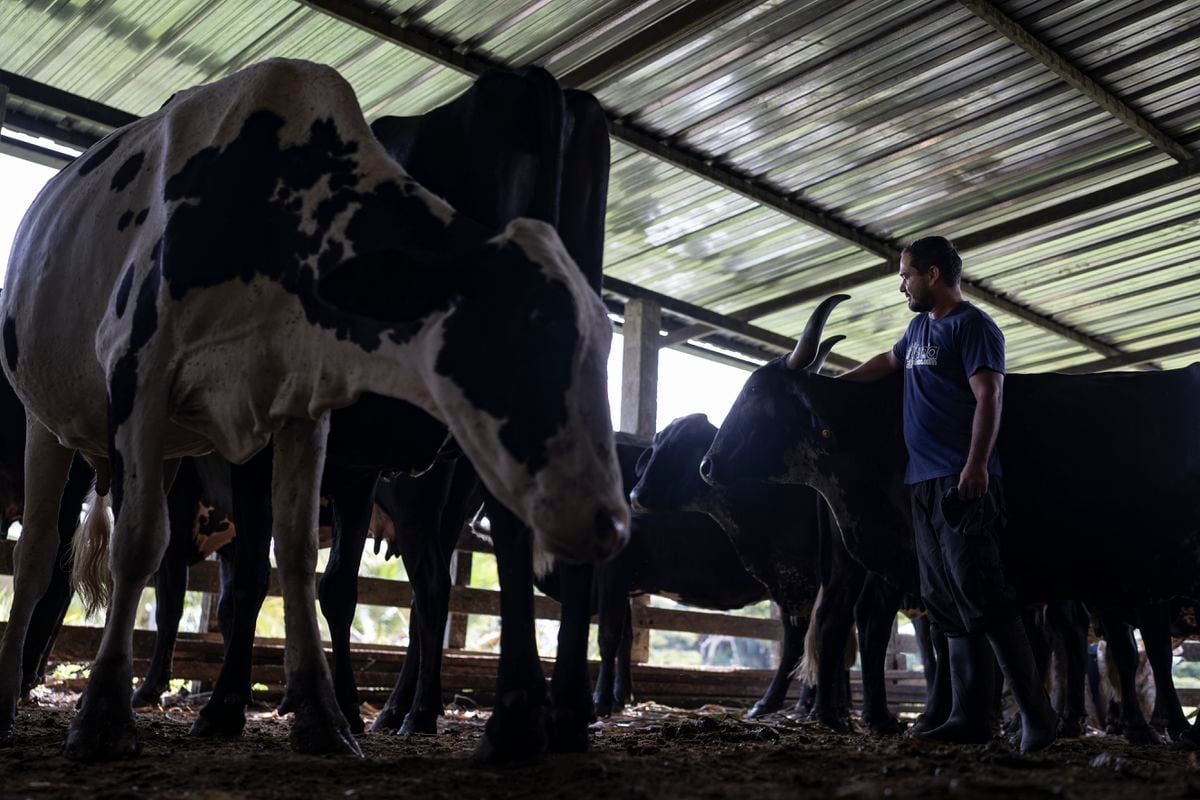Damascus-Sana
Since the beginning of this year and until today, the Ministry of Agriculture and Agrarian Reform has implemented about 343,000 free artificial inseminations for cattle and sheep and granted approvals to import 508,000 tons of feed supplements.
The director of animal production at the ministry, Dr. Osama Al-Hammoud, said in a statement to SANA that the directorate annually produces 500 thousand artificial insemination straws and 300 thousand liters of nitrogenous fluid needed to support livestock in the semen and nitrogenous fluid production center in Damascus. It also carries out annually 500 thousand artificial insemination as a free annual service of approximately 2 One billion Syrian pounds, indicating that 342760 artificial inseminations have been carried out since the beginning of this year to date.
Al-Hammoud pointed out that the ministry is concerned with genetic improvement programs, preparing maps that distribute livestock and a database for it, setting technical conditions for establishing animal and poultry farms, granting licenses related to them, and implementing a project to publish and popularize artificial cattle insemination in Syria, which provides free artificial insemination service to cows for all breeders starting from The production of frozen semen straws and preserved with nitrogenous liquid up to the implementation of the pollination process in the field through a network of artificial insemination of about 900 vaccinators in all governorates.
Al-Hammoud pointed out that the directorate constantly monitors local and imported feed additives and materials in terms of their conformity with specifications and standards, as well as working to inventory and classify materials, determine technical specifications for them, and grant "technical" approvals necessary for importing feed and feed supplements, and setting up feed laboratories and facilities in addition to conducting analyzes on material samples. To ensure its suitability for feeding animals and poultry, indicating that the amount of imported feed materials and additives reached 508,848 tons until the end of July.
Ghossoub Abboud















